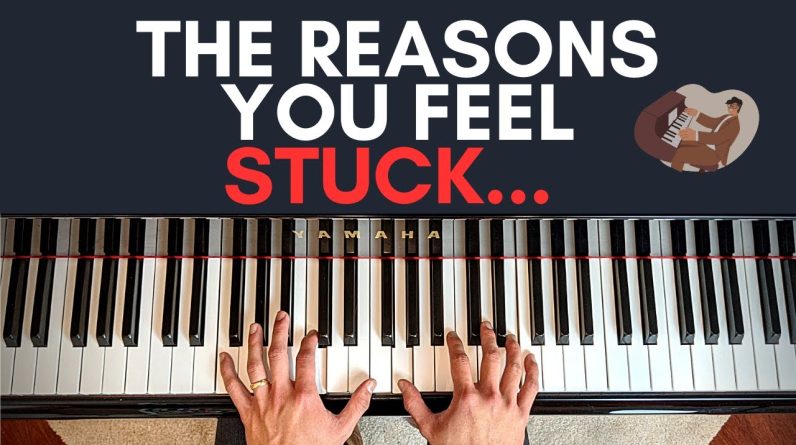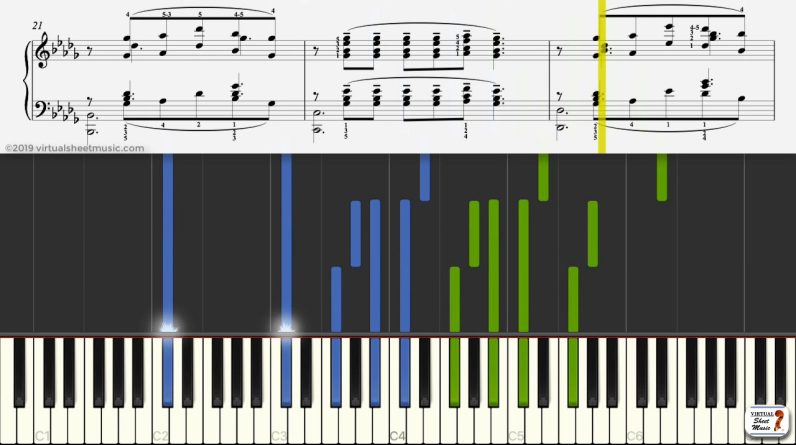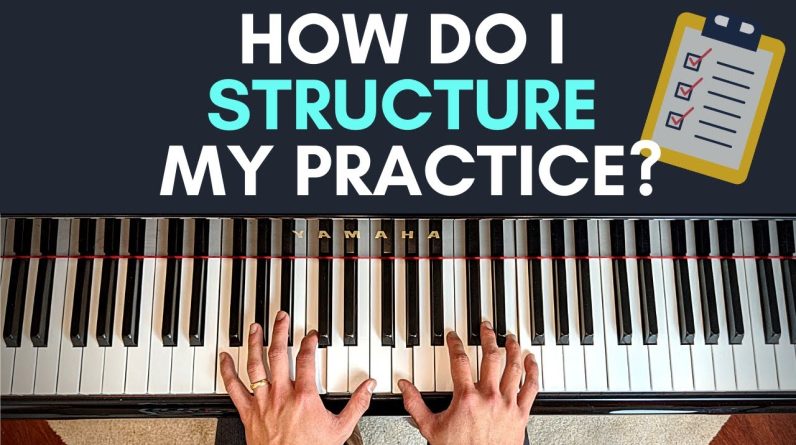#1 FAST Way to Learn Piano – Find Out How
Are you worried that it might be too late for you to learn piano? Well, fear not! The guys at Alamo Music Center, believe that it is never too late to start your musical journey. In this video, they address the question of whether it’s too late to learn piano and offer helpful tips to get started.
They discuss the importance of setting goals, finding the right instrument, and discovering different approaches to learning that work for you. Whether you’re a beginner or someone looking to get back into playing, they are there to support you every step of the way. Check out their YouTube channel for more videos and information, and don’t hesitate to reach out to the knowledgeable staff at Alamo Music Center for any questions or assistance you may need.
Choosing a suitable and enjoyable piano instrument
Choosing the right piano instrument is essential for a fulfilling and enjoyable learning experience. Whether you are a beginner or have some experience, having an instrument that suits your needs and preferences can greatly affect your progress and overall enjoyment.
When selecting a piano instrument, consider factors such as your budget, available space, and personal preferences. There are various types of pianos available, including digital pianos, upright pianos, and baby grand pianos. Each type has its own unique sound and features, so it’s important to try them out and see which one resonates with you the most.
Is it too late to learn piano?
No, it is never too late to learn piano. The better question to ask is: at your age, what are your piano goals? It’s common for adults to think that learning an instrument is only for children or that they have missed their opportunity. However, age should not be a limiting factor when it comes to pursuing your passion for music. Whether you want to learn for personal enjoyment, play for friends and family, or even perform professionally, it is never too late to start your piano journey.
Setting goals and measuring improvements
Setting goals is an important part of learning any new skill, including playing the piano. Your goals will largely depend on your personal aspirations and motivations. Some common goals for piano learners include improving finger dexterity, learning to play specific songs or genres, or even achieving a certain level of proficiency.
Measuring your progress along the way is key to staying motivated and focused. Keep track of the pieces you have learned, the techniques you have mastered, and the improvements you have made over time. This will help you stay on track and give you a sense of accomplishment as you reach each milestone towards your ultimate goal.
Tips to get started with learning piano
If you’re just starting out on your piano journey, here are a few tips to help you get started:
- Find a suitable instrument: As mentioned earlier, choose a piano instrument that suits your needs and preferences. Consider factors such as budget, space, and the sound you are looking for.
- Establish a consistent practice routine: Regular and consistent practice is key to progress. Set aside dedicated time each day or week to practice, and stick to it. Even short practice sessions can be effective as long as they are consistent.
- Start with the basics: Begin with learning the fundamentals of piano playing, such as proper hand posture, finger placement, and basic music theory. Building a strong foundation will make learning more advanced techniques and playing challenging pieces easier in the long run.
- Seek guidance from a teacher or online classes: Having a knowledgeable teacher or taking online classes can greatly enhance your learning experience. They can provide guidance, feedback, and additional resources to help you progress.
- Break down challenging pieces or techniques: If you come across a difficult piece or technique, break it down into smaller sections and practice each section separately before putting it all together. This method of gradual learning will make it easier to tackle complex pieces.
Remember, learning to play the piano is a journey, and it’s important to enjoy the process. Be patient with yourself, celebrate small victories, and embrace the joy of making music.
Finding a teacher or online classes to learn piano
Learning the piano can be a rewarding and enriching experience with the guidance of a knowledgeable teacher or online classes. Both options have their own advantages, so it’s important to consider your personal preferences and learning style.
Finding a teacher allows for one-on-one instruction, personalized feedback, and a tailored learning plan. A teacher can provide guidance, help correct any mistakes or bad habits, and introduce you to new techniques and musical concepts. They can also provide valuable insights and motivate you to improve.
Online classes offer flexibility, convenience, and a wide range of resources. Many online platforms provide structured lessons, video tutorials, interactive exercises, and even virtual feedback. This option allows you to learn at your own pace and explore different styles and genres of music.
Before choosing a teacher or online piano lessons, consider factors such as their qualifications, teaching approach, and the specific skills or techniques they specialize in. It may be helpful to schedule a trial lesson or preview the content of online classes to ensure it aligns with your goals and learning style.
Different approaches to learning and finding what works for you
Everyone learns differently, and it’s important to find an approach that works best for you. Some people thrive in a structured and formal learning environment, while others prefer a more relaxed and self-directed approach. There is no one-size-fits-all method when it comes to learning the piano, so feel free to experiment and find what resonates with you.
Some possible approaches to consider include:
- Traditional music lessons: This involves finding a qualified piano teacher who can provide personalized instruction, feedback, and guidance.
- Online lessons or tutorials: Many websites, platforms, and YouTube channels offer piano lessons, tutorials, and resources for learners of all levels.
- Self-study and online resources: Some learners prefer to teach themselves using books, online resources, and instructional videos. This approach allows for more flexibility and independence in the learning process.
- Group lessons or workshops: Joining a group class or workshop can provide a supportive and collaborative learning environment. It also offers the opportunity to learn from and connect with fellow piano enthusiasts.
The key is to find an approach that motivates and engages you, allowing you to progress at a pace that feels comfortable. Don’t be afraid to try different methods or mix and match to find what works for you.
Importance of having a fun and suitable instrument
Choosing a piano instrument that is enjoyable to play is crucial for maintaining motivation and interest. Whether you opt for a digital piano, upright piano, or baby grand piano, finding an instrument that suits your preferences and playing style can greatly enhance your musical journey.
When selecting a piano, consider factors such as the touch and feel of the keys, the sound quality, and the overall aesthetics. Try out different models and brands to find the one that resonates with you. It’s also important to consider the size and space requirements of the piano, especially if you are limited on space. Digital pianos are a great option for those with limited space, as they are usually more compact and portable.
Additionally, investing in a piano with good sound quality can make practicing and playing more enjoyable. The tone and resonance of the instrument can greatly impact your overall playing experience and inspire you to keep improving.
Piano facts and information about baby grand pianos
Baby grand pianos are a popular choice among beginners and professional pianists alike. They offer a compact size that can fit in smaller spaces while still providing a rich and expressive sound.
The term “baby grand” refers to the smallest size of grand pianos made by a specific manufacturer. The size may vary depending on the manufacturer, but generally, baby grand pianos range from four and a half feet to around six feet in length. They are an excellent option for beginners due to their size and affordability compared to larger grand pianos.
Baby grand pianos are known for their elegant appearance and high-quality craftsmanship. They often feature beautiful finishes, intricate details, and a smooth, responsive touch. Despite their smaller size, they can produce a powerful and dynamic sound that is well-suited for various musical genres and playing styles.
Whether you are a beginner or an experienced pianist, a baby grand piano can be a fantastic instrument to start or continue your musical journey.
Alamo Music Center and Kawai Piano Gallery
If you are looking for a place to explore and find the perfect piano instrument, Alamo Music Center and Kawai Piano Gallery are excellent options to consider.
Alamo Music Center, located in downtown San Antonio, Texas, is a reputable and renowned music store that offers a wide selection of pianos, including digital and acoustic options. They have a team of knowledgeable staff who can assist you in finding the instrument that best suits your needs and preferences. Whether you are a beginner or a seasoned player, they can guide you through the process of selecting the perfect piano.
Kawai Piano Gallery, a division of Alamo Music Center, specializes in premium Kawai pianos. Kawai is a well-established and highly regarded piano manufacturer known for their exceptional craftsmanship and innovative technology. At Kawai Piano Gallery, you can explore a range of digital and acoustic Kawai pianos and experience the rich sound and exquisite touch that Kawai instruments are known for.
Both Alamo Music Center and Kawai Piano Gallery prioritize customer satisfaction and aim to provide a positive and enjoyable piano shopping experience. They offer a variety of options and services, including financing, delivery, and maintenance, to ensure that you find the perfect piano instrument for yourself or your loved one.
Practicing and dedicating time to learning an instrument
Learning to play the piano requires dedication, commitment, and regular practice. It’s important to set aside dedicated time each day or week to practice and improve your skills. Consistency is key, even if it means practicing for shorter periods but doing it regularly.
Create a practice routine that works for you and fits into your schedule. Aim for consistency rather than lengthy practice sessions. Even practicing for just 10-15 minutes a day can yield significant results over time. Make sure to focus on areas that need improvement, such as technique, sight-reading, or specific pieces.
It can be helpful to break down your practice session into smaller segments, focusing on specific techniques or sections of a piece. This way, you can give each area the attention it deserves and gradually put them all together.
Additionally, don’t hesitate to seek guidance from your teacher or online resources if you encounter challenges or have questions. They can provide valuable feedback and help you overcome obstacles in your learning journey.
Remember, progress takes time, and patience is key. Celebrate small victories along the way and enjoy the process of learning and making music.
Sharing and playing music with others
Playing the piano is not only a personal journey but also a means for connecting with others and sharing the joy of music. There are various opportunities to engage with other musicians and music enthusiasts, both in-person and online.
Consider joining a local music community, such as a piano club or ensemble, where you can meet like-minded individuals and exchange knowledge and experiences. Collaborating with others and playing music together can be highly rewarding and can enhance your overall musical development.
In addition to in-person interactions, the internet provides a vast platform for connecting with musicians from around the world. Online forums, social media groups, and music-sharing platforms allow you to share your progress, seek feedback, and connect with a global community of piano enthusiasts.
Sharing music with others can bring a sense of fulfillment and inspire you to continue improving your skills. Whether it’s performing for friends and family, participating in recitals or competitions, or simply jamming with fellow musicians, playing music together creates a unique and memorable experience.
Conclusion
Learning to play the piano is an enriching and fulfilling journey that is never too late to embark on. By setting goals, finding a suitable instrument, seeking guidance from teachers or online classes, and dedicating time to practice, you can make significant progress and experience the joy of making music.
Remember, everyone learns at their own pace, and there is no one right way to approach learning the piano. Find a method that suits your learning style and goals, and don’t hesitate to explore different resources and approaches.
Whether you choose a digital piano, upright piano, or baby grand piano, finding an instrument that resonates with you is essential for an enjoyable playing experience. Consider visiting Alamo Music Center or Kawai Piano Gallery for a wide range of piano options and expert guidance in finding the perfect instrument.
Lastly, don’t forget to share and enjoy music with others. Connect with fellow musicians, participate in local music communities, and embrace the joy of playing together.
So, is it too late to learn piano? Absolutely not. The world of music is waiting for you to join in and create beautiful melodies. Start your piano journey today and unlock the endless possibilities that music can bring.
#1 FAST Way to Learn Piano – Find Out How
- Pianoforall Review: By Current Pianoforall Student (2024) - January 16, 2024
- 7 Pitfalls Piano Beginners Face and Tips That Will Help - January 7, 2024
- Learn Clair de Lune Sheet Music by Debussy – Keyboard Practice Video - December 16, 2023
Contents
- 1 Choosing a suitable and enjoyable piano instrument
- 1.1 Is it too late to learn piano?
- 1.2 Setting goals and measuring improvements
- 1.3 Tips to get started with learning piano
- 1.4 Finding a teacher or online classes to learn piano
- 1.5 Different approaches to learning and finding what works for you
- 1.6 Importance of having a fun and suitable instrument
- 1.7 Piano facts and information about baby grand pianos
- 1.8 Alamo Music Center and Kawai Piano Gallery
- 1.9 Practicing and dedicating time to learning an instrument
- 1.10 Sharing and playing music with others
- 1.11 Conclusion








